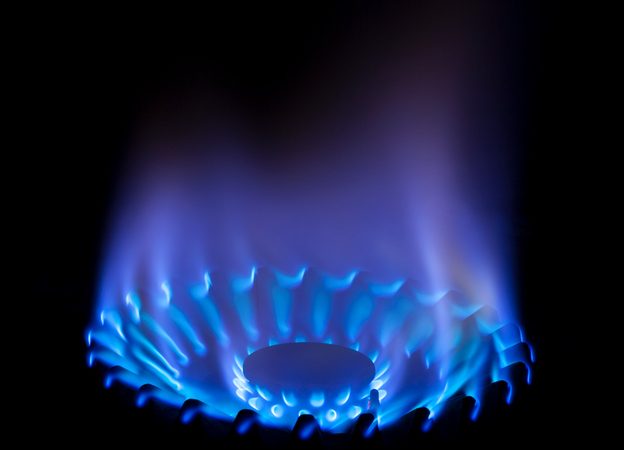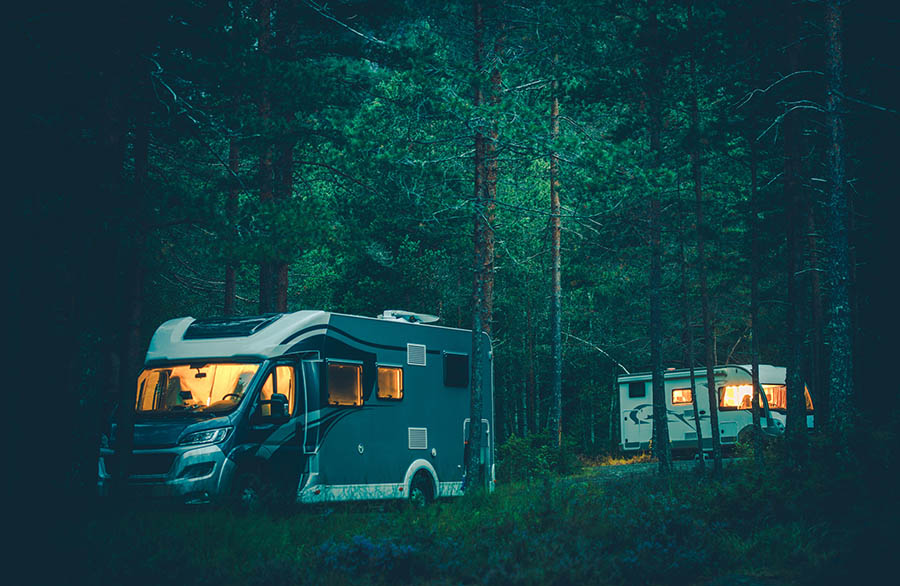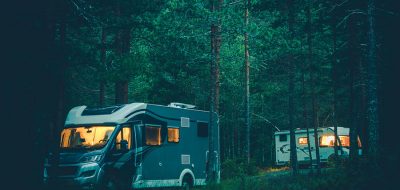Motorhomes with or without lp-gas — looking at the pros and cons.
Many larger class A motorhomes sold today are “all-electric.” Now, the name may be somewhat misleading, as it has nothing to do with the vehicle’s propulsion, so don’t confuse it with those automobiles that use battery-power drive.
The “all-electric” term refers to using no lp-gas for cooking, heating or operating refrigerators. There are, however, so-called all-electric” RVs that employ residential refrigerators but have propane cooking stoves. These generally are demanded by people who believe gas cooking is the only way to go. Folks who dry camp (without hookups) find this method of cooking somewhat less power-reliant and more agreeable to their lifestyle.
So what are the advantages and disadvantages of having lp-gas or not?

LP-gas-equipped Motorhome Advantages:
- Instant gas-flame cooking
- Less dependent on the power grid or generator to recharge batteries
- Better form of energy for extended dry camping
Non-lp-gas, All-Electric Motorhome Advantages:
- More space in the basement with no need for an LP-gas tank bay
- Safer non-explosive or flammable cooking fuel
- Ability to have an induction cook top stove
Well, as you can see, there are benefits to motorhomes with or without lp-gas. Which is best for you may be entirely dependent on your intended application and personal needs. However, both configurations we looked at were equipped with the highly popular residential refrigerator. This was perhaps the biggest leap in RV refrigeration when first introduced on a wide scale near 20 years ago. Since then, many RV manufacturers have offered the newer power-efficient units similar to those found today in your house. While these come with all the newer full electric motorhomes, the proven low-energy needs allows these to be used on many conventional configured units.
So, whether you like the glow of the flame or the clean efficient light of an induction burner, you can still enjoy the purr of an energy efficient residential refrigerator. Enjoy your motorhomes with or without lp-gas.
Check out articles about lp-gas and other tech tips.
Peter Mercer – With an Electrifying View






Anonymous
All electric might be ok if all you do is travel from one motor home resort to the next. For me I do dry camp more than not. I have solar on the roof and only use the generator as a back up. Propane to me is essential and I’ll give up a storage bay to have it. To me all electric is not very efficient for dry camping.
That leads me to the question, why all electric in the first place. I think it’s easier for the coach builders because I don’t see an advantage to the RVer.
If it works leave it alone.
Anonymous
Thanks Peter for your quick reply.
We will continue looking for a new motorhome but all electric is out of the question. If we cannot find a propane 3-way refrigerator and propane stove in a new motorhome, we are not going to buy a new motorhome.
The 2005 Cheetah with its’ 3-way refrigerator is quiet and if our generator or batteries go out when we are on the road, we still have propane back-up to keep it cool.
I am not convinced yet that all electric is a good idea in a motorhome.
Peter Mercer
Well, there is no correct answers for how long or often you would need to start the genset to recharge. Such things as the size of the battery bank, battery condition, charger stages, charger output, electrical demand, etc. etc. Residential refrigerators today run far more efficient than years ago. They also can be subjected to off-balance (Out of level) without the damage that propane fired fridges can suffer.
The LG home fridge is not normally what one might call loud. Of course one must evaluate what loud is to one as to someone else. Still, I would contact the manufacturer and try to determine if in fact that is normal. I hope this is of some help. Participating in blogs and forums may also further be of aid.
Anonymous
At home, our fairly new LG home refrigerator is noisy. We shut our bedroom door at night to sleep because of the noise. Are the new home refrigerators in a motorhome as quiet as the propane ones? I would think they are just as noisy as our in-home LG refrigerator.
How long can you go in 100 degree heat before you have to recharge batteries with the generator when you are all electric and boondocking?
How do the batteries recharge in winter when it’s rainy and dark outside?
We prefer to be off grid when travelling. Answers to these questions mean a lot as we are looking to replace our 2005 Cheetah.
Peter Mercer
Dry camping, or camping without water or power, can be accomplished with either a non-all electric coach or a fully all electric coach. The fully all electric generally are equipped with additional battery power. Using the stove in this case requires the use of the generator. Propane stoves therefore avoid the need to run the generator for the cooking portion of the operation.
Anonymous
How do you dry camp?